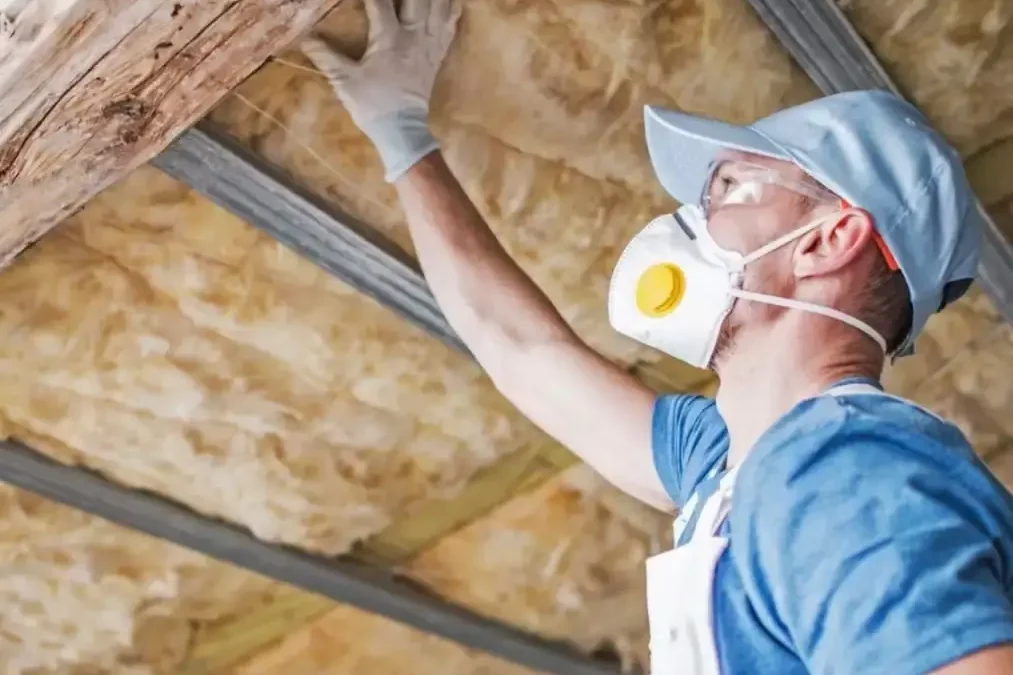Understanding ductwork insulation
Most homes have ductwork, which is a system of tubes that carries air throughout your home. Insulating your ductwork can help keep the air at the right temperature and improve your home’s energy efficiency. Here are a few key points to understand about ductwork insulation:
- Reduces Energy Loss: Insulating your ductwork can prevent heated or cooled air from escaping, making your HVAC system work more efficiently.
- Improves Air Quality: Properly insulated ductwork can also help keep dust and debris from entering your home through the air vents.
- Cost-Effective: While upgrading your ductwork insulation may require an initial investment, the long-term energy savings can make it a cost-effective upgrade.
- Expert Installation: It’s vital to have a professional assess your ductwork to determine the appropriate insulation needed for your home.
![]()
Why upgrade your ductwork insulation?
Upgrading your ductwork insulation can make a significant difference in your home’s energy efficiency. By improving insulation, you can help regulate the temperature in your rooms more effectively. This means your HVAC system won’t have to work as hard to keep your home comfortable, potentially leading to lower energy bills. Additionally, better insulation can help reduce noise from your HVAC system and outside sources, creating a quieter and more peaceful living environment. Lastly, upgrading your ductwork insulation can also improve the air quality in your home by reducing the amount of dust and allergens that can circulate through your ducts.
Energy efficiency and cost savings
Upgrading your ductwork insulation can improve your home’s energy efficiency and help you save on heating and cooling costs. Properly insulated ducts can prevent air leakage and maintain the desired temperature in your home more effectively. This means your HVAC system won’t have to work as hard to keep your home comfortable, leading to lower energy bills. Plus, with reduced energy consumption, you’ll also be reducing your environmental impact.
Improved indoor air quality
Upgrading your ductwork insulation can significantly improve your indoor air quality. By sealing any leaks and adding insulation to your ducts, you can prevent dust, debris, and other pollutants from entering your home’s air supply. This helps in creating a healthier environment for you and your family by reducing the amount of allergens and contaminants circulating in the air.
Enhanced HVAC system performance
Upgrading your ductwork insulation can significantly improve your HVAC system’s performance. By ensuring that your ducts are properly insulated, you can prevent air leaks and maintain a more consistent temperature throughout your home. This leads to increased energy efficiency, lower utility bills, and a more comfortable indoor environment. Upgrading your ductwork insulation is a cost-effective way to enhance the overall performance of your HVAC system.
Types of ductwork insulation materials
Fiberglass, foam board, and reflective insulation are common types of ductwork insulation materials. Fiberglass is affordable and offers good thermal protection. Foam board is easy to install and provides excellent insulation. Reflective insulation helps reduce heat transfer and can improve energy efficiency. Each material has its advantages, so choose one that suits your needs and budget.
Signs that your ductwork insulation needs an upgrade
If your home feels less comfortable than usual, your energy bills are soaring, or you notice temperature inconsistencies throughout your space, those could be signs your ductwork insulation needs an upgrade. Unusual amounts of dust in your home or experiencing poor indoor air quality can also indicate issues with your insulation. Upgrading your ductwork insulation can improve the efficiency of your HVAC system, resulting in better air quality, increased comfort, and potentially lower energy costs over time.
Hiring a professional for ductwork insulation installation
Professional ductwork insulation installation is crucial for ensuring proper functioning and efficiency of your HVAC system. Hiring a professional for this task guarantees that the job is done correctly, preventing potential issues and ensuring optimal insulation performance. Professionals have the expertise to assess your specific needs, select the appropriate insulation materials, and install them effectively. By entrusting this task to a professional, you can enjoy improved energy efficiency, cost savings, and better indoor air quality in your Walnut Creek home.
Maintenance tips for ductwork insulation
Proper maintenance of ductwork insulation can help improve your home’s energy efficiency and indoor air quality. Here are some key tips to ensure your ductwork insulation functions efficiently and effectively:
- Regularly inspect the condition of your ductwork insulation for any signs of wear or damage.
- Seal any gaps or leaks in the ductwork to prevent air loss and maintain proper insulation.
- Consider upgrading to high-quality insulation materials for better thermal efficiency.
- Schedule professional ductwork inspections and cleanings to ensure optimal performance.
- Replace old or damaged insulation promptly to prevent energy loss and improve overall insulation effectiveness.
Conclusion: The impact of upgrading your ductwork insulation
Upgrading your ductwork insulation can lead to a more efficient heating and cooling system in your home. By improving your duct’s insulation, you can reduce energy waste, lower your utility bills, and create a more comfortable indoor environment. It also helps to maintain better air quality by reducing the risk of dust and allergens circulating through your home. Overall, upgrading your ductwork insulation in Walnut Creek can result in cost savings, improved comfort, and better indoor air quality for you and your family.

